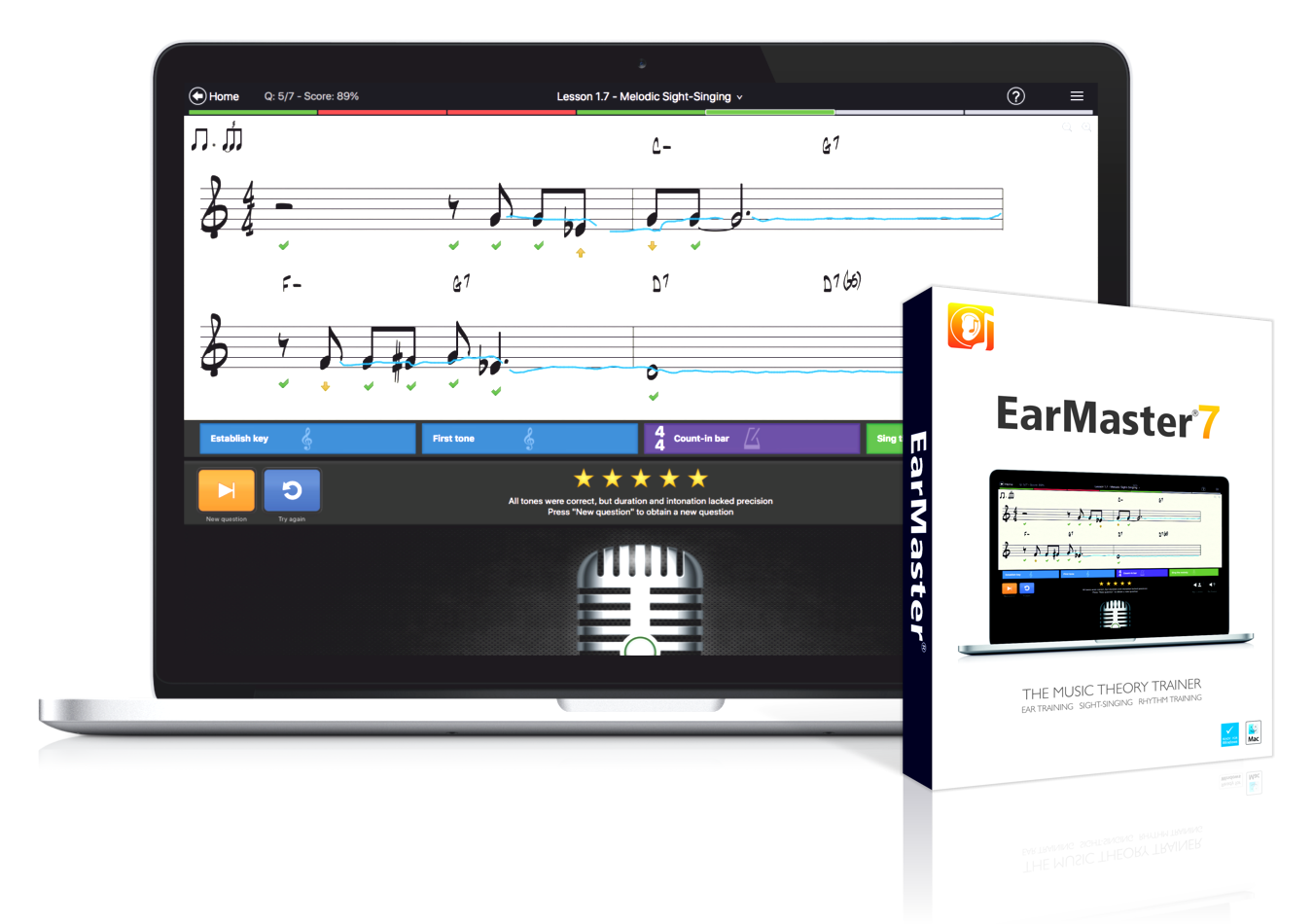
Nanu? Seite auf Englisch? Hallo, ja das stimmt. Momentan arbeiten wir daran, die gesamte EarMaster-Webseite nun auch auf Deutsch anbieten zu können. Das braucht natürlich Zeit. Vieles haben wir schon geschafft, der Rest folgt bald. In der Zwischenzeit kannst du dir ja die kostenfreie EarMaster-Version downloaden, denn die gibt es ja schon lange in vielen Sprachen. Deutsch inklusive. Bis dann …
What is ear training?
Ear training makes you a better musician
Ear training is the process of connecting music theory (notes, intervals, chords, scales, melodies, etc.) with the sounds we hear. In other words, studying ear training is building a bridge between the language of music and the sounds that are designated by that language.
The more we train our ear to recognize this connection, the better we get at playing music, because we learn to understand what we play and to anticipate musical structures.
Who needs ear training?
The short answer is all musicians.
Both beginners and professionals need to keep their ear in shape in order to know what they (and others for that matter) are playing and to anticipate what they are about to play. This is called improving one's relative pitch.
This is why ear training is a mandatory course in about 99.9% of all music schools, conservatories and general music courses around the world.
How do you train your aural skills?
The main focus of ear training being the development of aural skills, the training sessions mainly involve identifying sounds by ear and naming them, transcribing them, playing them back, singing them or, at more advanced levels, improvising upon them according to harmonic rules.
In many music schools, ear training includes the use of solfege syllables (movable-Do system), which puts recognition skills into a tonal context. Singing is also widely spread, as there is a direct connection between hearing correctly and singing accurately (e.g. most singers with poor pitch accuracy have simply bad aural skills).
What does ear training cover?
Ear training is usually consisting in the study of:
- pitches
- intervals
- chords
- scales and modes
- chord progressions and cadences
- rhythm
What are the benefits of ear training?
- Transcribe melodies and chords by ear
- Improve your improving skills
- Improving your rhythmic skills
- Improve your singing skills
- Improve your intonation
- Improve your ability to tune your instrument
- Improve your musicality
- Interact with other musicians more easily
- Compose music faster
- Sing on pitch
Ear training software - a good idea?
Ear training typically requires two persons to be efficient: one to ask questions, and one to answer them. The feedback you get on how you identify intervals, chords or scales is the key element to your progression. This is where computers come in very handy for ear training. A computer never gets tired, a computer will be ready to train you any time you want as long as you want. A computer will tell you instantly if your answer is right or wrong. A computer won't pass judgement on your skills, it will accompany you in your progression.
The most efficient way to train your ear is ear training software.






